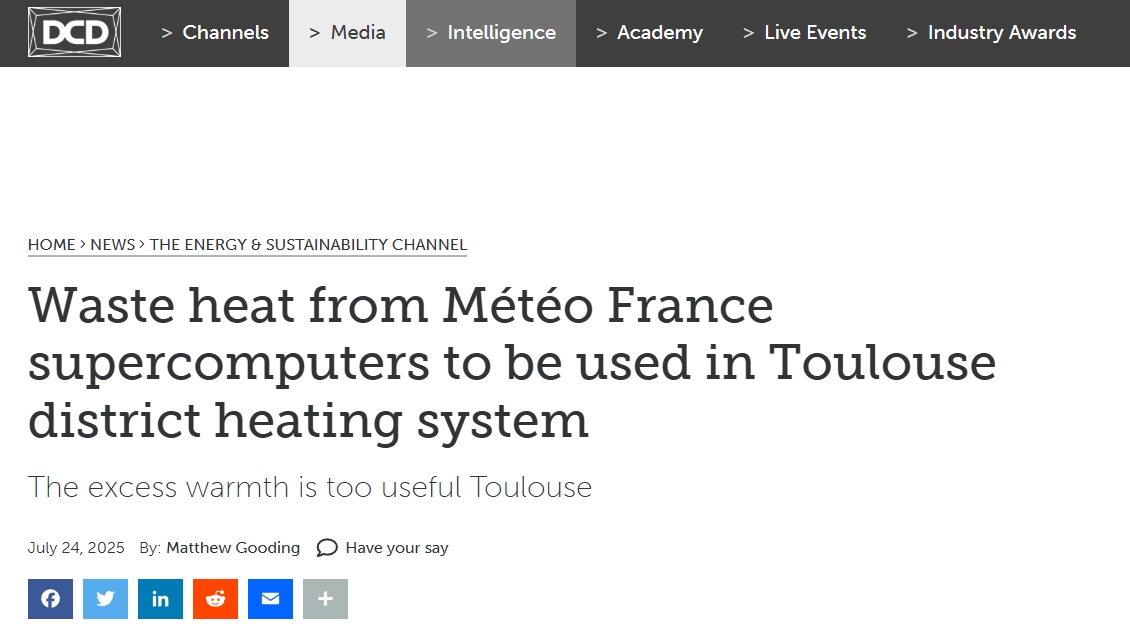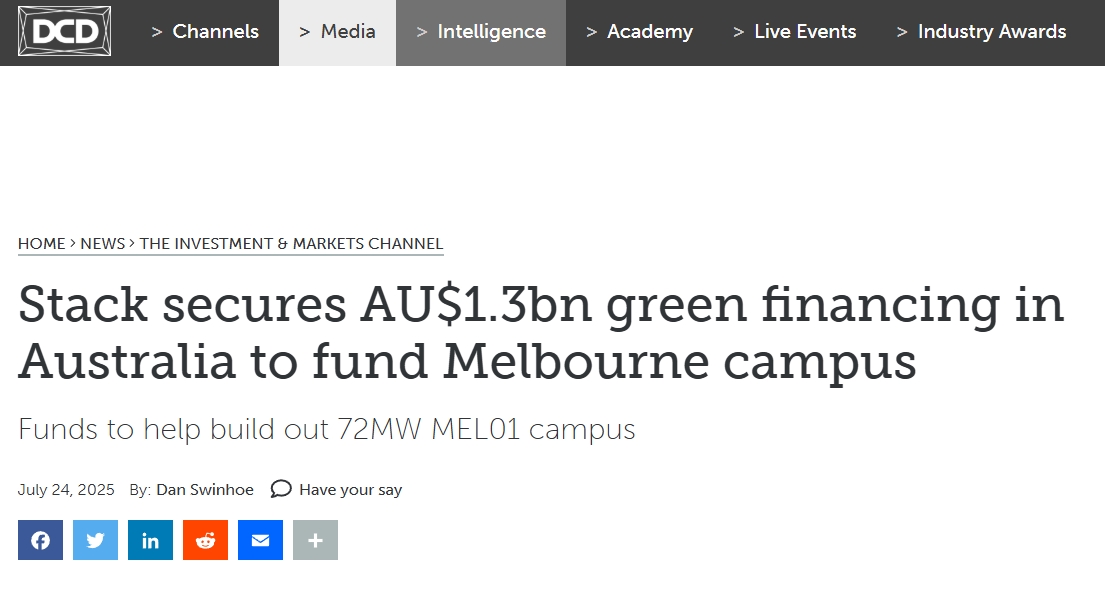Elea Data Centers announces Rio Al City, a Brazilian data centre project to support AI growth with 3.2GW of renewable energy with delivery starting in 2026.
In 2026, Rio Al City is expected to initiate operations with an initial energy capacity of 1.5 GW.
This development is part of the Rio de Janeiro City Hall’s ambition to innovate and revitalise urban areas, with its energy supply being fully renewable and certified.
The data centre will incorporate waterless systems to address the escalating demands of AI on the global data centre sector.
“We see Brazil and Rio de Janeiro positioning themselves at the global epicentre of digital transformation.”
Alessandro Lombardi, President and Founder of Elea Data Centers
Elea Data Centers, one of the leading sustainable infrastructure providers, is responsible for the project and has announced up to 3.2GW of energy capacity in the country to support the accelerated growth of AI and cloud computing systems.
The company's expansive geographic reach in Brazil positions it to transform Rio Al City into a nexus of connectivity, renewable energy and logistical strategy within the data centre industry.
“We are talking about a data centre city designed for the future, creating an ecosystem between community, sustainability and technological innovation,” says Alessandro Lombardi, President and Founder of Elea Data Centers.
“Rio AI City is born with energy available and connectivity and it is a project capable of attracting the brains that will design the world to come.
“We see Brazil and Rio de Janeiro positioning themselves at the global epicentre of digital transformation.”
Creating a competitive edge with sustainable strategy
The initiative will involve several billion dollars, making it one of the largest digital infrastructure initiatives in Latin America (LATAM) and the world.
Central to its mission is an emphasis on efficiency and sustainability, featuring waterless cooling systems integral to Rio’s urban renewal strategy.
While waterless cooling has been a topic of discussion within the data centre industry, its adoption is accelerating in response to sustainability demands.
RIO AI CITY KEY FACTS:
Initial energy capacity of 1.5 GW dedicated to AI and cloud workloads, potentially expanding up to 3.2 GW
Operational from day one: It stands as the most interconnected site in the Rio de Janeiro region
A certified Tier 3, world-class facility
100% renewable energy
Uses waterless cooling systems and green skin design
Strategic location, connected to the submarine cable hub
As technology demand escalates, operators increasingly seek solutions to mitigate environmental impacts.
For instance, Microsoft is pioneering zero-water cooling systems by introducing chip-level cooling designs, projected to conserve 125 million litres of water annually per facility through innovative cooling solutions.
The first phase of Rio AI City, which already includes the operation of the RJO1 data centre, is now in the construction phase of the RJO2 site, which will begin delivering capacity of approximately 80 MW in 2026.
Subsequent expansions, including RJO3 and RJO4, will introduce an additional 120MW.
Elea envisions ongoing expansions to eventually reach a total capacity of up to 3.2GW.
The project features infrastructure designed for high-density racks and green skin architecture, blending energy efficiency with sustainable operations and construction.This model supports community empowerment, sustainability and urban regeneration, aligning with Rio de Janeiro’s city policies.
Alessandro adds: “The digital transformation requires a solid, sustainable infrastructure connected to the city. Rio AI City represents Elea’s commitment to the innovation ecosystem, and reinforces the role of Rio as one of the global capitals of AI and the new digital economy.”
How Rio Al City could change the LATAM data centre industry
The launch of Rio Al City occurs during an important phase for Brazil, a nation marked by swift technological advancements and regional digital evolution.
Boasting Brazil’s second-largest GDP, Rio de Janeiro is home to initiatives like Porto Maravalley, a cutting-edge technology education hub in Latin America.
In 2023, Brazil led LATAM in data centre investments, accounting for approximately 40% of the region's total.As the LATAM data centre industry expands, São Paulo is currently one of the leading locations, particularly as it benefits from access to 10 of the main submarine cable routes connecting South America.
Consequently, Brazil has witnessed rapid market expansion, with global operators such as Equinix, Microsoft and OData establishing a strong presence.
Rio Al City is poised to generate substantial economic benefits, including more than 10,000 jobs and significant direct and indirect investments, while promoting digital inclusion and attracting diverse tech enterprises.
Inspired by Rio’s cultural legacy and natural beauty, the public-private partnership will also involve reforesting and revitalising more than 200,000 square metres, integrating a digital zone devoted to green technology.“Rio is consolidating its position as the capital of the new economy,” says Eduardo Paes, mayor of Rio de Janeiro.
“Projects like Rio AI City show we are ready to lead the digital revolution with sustainability, inclusion and innovation.
“This initiative reinforces our commitment to transforming Rio into a major global technology hub, attracting investment, generating quality jobs and connecting our city to the future.”








